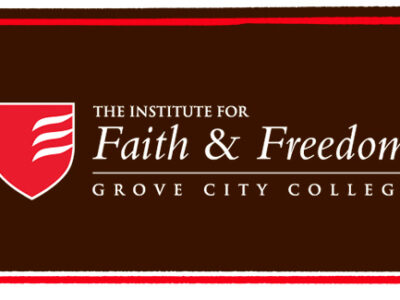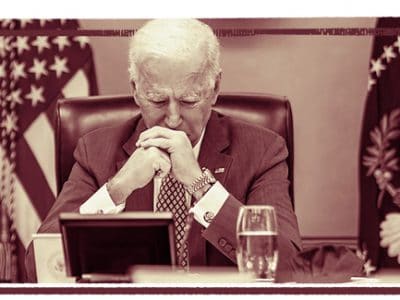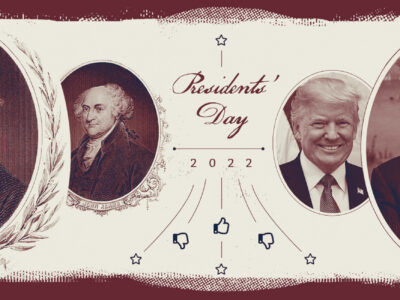
The haunting refrains of Harry Chapin’s song “Cat’s in the Cradle,” like “planes to catch and bills to pay … when you coming home, dad?” started to play in my mind recently. A Fortune 500 company recruiter asked to join me in my office after a day of on-campus interviewing. He immediately locked in on, and asked about, the picture of my wife and four kids. With a quavering voice, as if speaking from his soul, he issued an unexpected directive to me: “You go home at five o’clock, Jim, and be a devoted and available husband and father!” He then explained what he called his well-intentioned, but heartbreaking, life story.
He explained that when he graduated from college, he set in place his personal life goals. He climbed the corporate ladder and brought in the big bucks, built multiple homes, and had all the club memberships and non-profit board appointments, as well as time-consuming hobbies. Most days, even on the weekends, he left his house before his family was up and arrived home after everyone was in bed. In society’s eyes, he had been a wildly successful businessman, amassing all the material possessions one could ever want and achieving an impeccable professional reputation. With intense emotion, he said, “I thought I was doing the right things, but I have failed terribly.” He ignored the most crucial relationships in his life, which were those of his family. He had been a stranger to them all along. “They wanted me,” he said, “not all the stuff. My wife and grown kids want nothing to do with me.” With tears streaming down his cheeks, he said, “It’s too late for me, Jim. You don’t want to be just like me.”
Considering this story of regret and stark warning, Father’s Day provides an opportunity to contemplate the indispensable calling of being a father. Fulfillment of this high calling demands, and then delivers, sacrificial and unconditional love, unwavering commitment, and selfless servant leadership.
Love is a decision. The wholehearted love of a father needs to be constant and unchanging. He is to be the representation of a permanent and loving presence in the home, beginning with demonstrating a sacrificial love for his wife. Unconditional love is to be extended to all, caring for and investing in each child individually, helping them to be considerate, trustworthy, and virtuous people. A father shows his love by being intimately involved in the lives of each family member. Sacrificial love is other-person-centered, and it fosters a sense of security and feelings of trust. Patience, faithfulness, a contrite heart and forgiving spirit, and a nurturing approach are all expressions of devoted love. True love is steady and enduring, no matter the circumstances.
 The “Cat’s in the Cradle” message provides a warning about not investing enough time in one’s family. There are so many powerful and seemingly desirable personal goals and idols that lure men away from the home. The needs of the family must always be the father’s priority, putting the everyday, often mundane, needs of his family before his own. A dedicated father is sold out for the spiritual, physical, and emotional well-being of his whole family. The commitment to “being there” for those under the father’s care is essential. He is to inspire those around him to be stewards of their gifts and abilities. Dads are compelled to ask sincere questions and genuinely listen to truly understand the hearts of their children. Being a real-time cheerleader for and an encourager and motivator of a child’s life moments should be a cherished joy.
The “Cat’s in the Cradle” message provides a warning about not investing enough time in one’s family. There are so many powerful and seemingly desirable personal goals and idols that lure men away from the home. The needs of the family must always be the father’s priority, putting the everyday, often mundane, needs of his family before his own. A dedicated father is sold out for the spiritual, physical, and emotional well-being of his whole family. The commitment to “being there” for those under the father’s care is essential. He is to inspire those around him to be stewards of their gifts and abilities. Dads are compelled to ask sincere questions and genuinely listen to truly understand the hearts of their children. Being a real-time cheerleader for and an encourager and motivator of a child’s life moments should be a cherished joy.
Fatherhood is a calling to ungrudgingly serve, not expecting to be served or catered to. Leadership is a call to humility. C.S. Lewis said, “humility is not thinking less of yourself; it’s thinking of yourself less.”
Fathers decide between being selfish or selfless. Leading by example through exemplifying fidelity, compassion, attentiveness, and thoughtfulness defines true benevolent leadership. Fathers are to be solely committed to their household. A strong male presence in the home is not devoid of, but full of, empathy, kindness, and grace.
Father’s Day is a day to honor and celebrate dads. But the day also compels fathers to examine their weighty calling as a dad.
Harry Chapin sings, “But we’ll get together then, Dad.” Someday is not a day of the week. Someday, on the calendar planner, comes right before too late.
When all is said and done, it will be the relationships and the commitment to love and invest in one’s family that will live on. That devotion will be life-changing and will last for generations to come.
Fathers, what kind of legacy will you leave?





